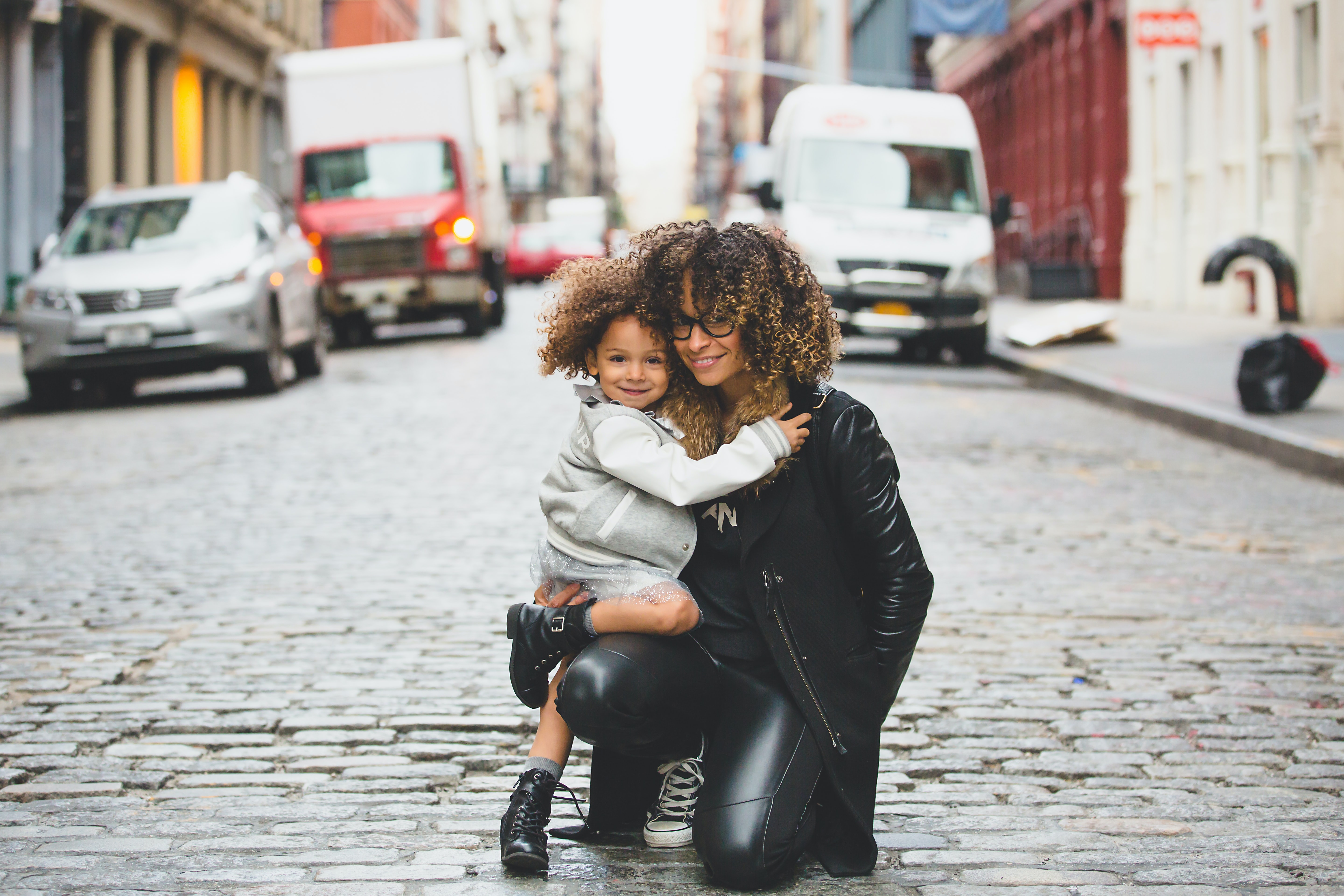I remember the moment I sat down with my husband after we had finally decided to move forward with our plans to adopt. Our minds were flooded with questions. We didn’t even know where to begin. That day was more than six years ago and I now realize that this moment is just part of the process for everyone who decides to adopt. We began asking advice from everyone we knew who had adopted, were foster parents, or had experienced adoption firsthand.
We sought wisdom from friends and friends of friends about every question we could think of. We simply had no idea where to start the process. If the facets of adoption made up a mountain, it would make Mount Everest look like a tiny anthill in my Midwestern backyard. It seems like there are no definitive answers as each scenario leads to more questions and options. The truth is, each adoption experience is unique. Every single one of them. There are so many places to start looking and so many variables to consider. There is comfort in knowing that every person or couple that decides to adopt experiences exactly the same thing.
Just like I did six years ago, you simply typed “ADOPTION ADVICE” into your favorite search bar and magically landed here. You, dear reader, are in the right place, because the more you know, the better prepared you will be. This article will not answer all of the questions swirling around your mind and keeping you awake at night. But hopefully, it can offer you some direction toward understanding some of the things that are important for you to know and consider as you prepare to welcome a child into your home.
I have taken the time to whittle my wide-ranging advice down to the top six pieces of adoption advice I have to offer. Below, you will find what I have discovered are some very important aspects of not only loving our adopted children but also allowing them the freedom to grow at their pace. Please understand, the fountain of adoption advice will never run dry but these six points have proven crucial in our family and they will hopefully be beneficial to you too!
1. Learn about the Effect that Trauma Can Have on a Child
The number one piece of adoption advice I can share is to spend time understanding how trauma can shape the life of a child and your family. It is so important to understand the long term effects of trauma on the developing brain because it helps us see the child more fully. When a child is in utero, any stress on the biological mother directly influences the child. Stressors can come from many places and when someone is stressed, the body naturally produces cortisol. In pregnancy, that cortisol can spread from mother to child.
This can have dangerous results as it can prevent the brain from developing correctly. When a child’s brain is developing in the womb, neurons are being produced at a very rapid rate. In brain development, neurons communicate with other neurons through synaptic connections. When the baby gets too much cortisol, these synaptic connections do not communicate properly and this can have long-term effects. It can result in parts of the brain not completely developing. This underdevelopment happens in the part of the brain that regulates decision making, judgment, and emotions. This can lead to behavioral and cognitive delays for this child.
It is also important to state that any child separated from their biological mother, even as an infant, will experience trauma. As an adoptive parent, understanding trauma is crucial to your success. The more you know about trauma, the more you will be able to identify when your child is having a response that links back to a traumatic situation, also known as a trigger. In such cases, you will need to handle the situation differently than you would instinctively react. This is a lot to process, trust me, I know, but there is hope for this child.
2. Attachment and Bonding
Understanding trauma will also help you better know how to attach and bond with your adoptive son or daughter. I have two adopted daughters and two biological sons. There is a natural attachment that was just there when I gave birth to our sons. Even though our daughters are both adopted, their attachment to me has been very different. One of our daughters has formed an attachment very naturally; however, for our other daughter, it has been a daily practice of intentional activity to produce attachment. It is not a natural instinctive process with her, meaning she simply doesn’t understand what it means to emotionally attach. I have had to learn to intentionally and therapeutically show attachment, trust, and love.
She has been with us for more than five years and I would say she is still learning to trust me. How a child forms attachments has a lot to do with how a child has been treated and cared for in the first several years of life. If a child lives in a home where their needs are met and they are held and cared for, attachment is a more natural response. On the other hand, if a child is neglected and their cries are ignored or met with a negative response, attachment will be hard. It will need to be taught and tested later in life. Attachment just isn’t natural for a child who has experienced a lot of trauma, neglect, and abuse.
This was evident when our daughter came to us at 5. I remember getting frustrated because I would ask her to look me in the eye when I was speaking to her after a time out. She would not look me in the eye. I spoke with our attachment and trauma therapist and she informed me that making eye contact can be terrifying for a child who lacks the learning experiences that create the ability to attach.
Just knowing that made me aware of how I was being perceived by her and how scary that that must be for her. As an adoptive parent, you only know pieces of the puzzle that has formed your child. Even a child who is adopted at birth has experienced things you won’t know about. You must spend time learning about the nature of attachment because it will be the lens through which your child subconsciously views his or her life.
3. Understand that Parenting Adoptive Children Can Be Different Than Parenting Biological Children
This one is a tricky subject but important to acknowledge. Each child responds differently to discipline. This is true of every child, biological or otherwise. It is important as a parent to understand that each child is unique. Some kids require a direct approach, while others need to figure things out on their own. As an adoptive parent, especially with kids who have lived life in a home other than yours, it is important to remember that they experience life differently than you or your other children. They have a lot more going through their minds than a child who has consistently been with you since birth.
When our oldest daughter came to live with us, there were things she did, even ways she acted, that did not sit right with me. Friends would tell me it was just a “girl” thing. I knew in my gut it was much more than that. I knew something else was going on but I just couldn’t put my finger on it. In time, I realized that she felt insecure. She didn’t have the benefit of knowing she was going to stay with us. She didn’t know that forever, in this case, really meant forever. I have to parent her with that in mind; I need to reinforce this forever kind of belonging to make sure that my daughter knows that we aren’t going anywhere.
This is something our boys will never have to think about. They react to our parenting knowing that we love them, they are safe, and they aren’t going anywhere. They know that I will never hit them or physically hurt them. They also know me so well that they can easily predict how I will respond to any given situation. If a child has lived in multiple homes, you must remember they have experienced different styles of parenting. I am not just referring to discipline. I am referring to all of the experiences he or she has had. Each home comes with its unique ways of existing. Different foods, different smells, different expectations, even the volume at which people speak is unique to the individual home.
When a child comes into your home after living somewhere else, they can be confused as to what is expected of them. It can take a long time to acclimate and you need to be patient. When you parent a child who has lived in multiple homes, you need to intentionally parent in a way that makes them feel safe, wanted, and loved. This can be challenging but keeping this in mind will be vital to your adoptive child feeling safe and loved.
5. There is Always More to Know
There are so many things I could say when offering adoption advice but I think it is important to acknowledge that there is always more to know. Adoption can be challenging but it is so worth it. When you welcome a child into your home, you open your heart and life to a person that you get to love. Each child is different and as your child grows, they will change. As your child grows and changes, it will be important for you to grow too.
If your adopted child has experienced trauma, neglect, or abuse, it is often something that is revealed over time. Memories, for kids who have experienced hard things, often ebb and flow. As the child ages, they will need to reprocess old and perhaps repressed memories. This is true of all those that have suffered abuse, neglect, and trauma.
If you adopt a child as an infant, keep in mind that they will likely need to process the pain of separation from their biological parent/s as they develop over time. The brain takes time to make sense of things that have happened and there is not a set rhythm to this process. It is important to sit with your kids through these moments of processing. It is invaluable to love them where they are, how they are without expecting them to live as though nothing has happened. True healing takes time. True healing can take place when you love someone and allow them the freedom to try to understand what has happened.
6. Be Humble and Give Yourself Grace
The last piece of adoption advice I can give is please remember to breathe. I know that there is a lot of hard truth in this article. At the end of the day, the truth is, you are willing to love a child and care for them. You are embarking on a journey and you have no idea where it will take you. You are willing and ready to accept a new child into your home and heart. Make sure you take time to breathe.
Parenting is hard work. When you add the complexities of adoption to the equation, it is even harder. You will mess up and it’s okay to not be perfect. Keep in mind that kids learn from your example and need to see you make mistakes and learn from them. Your experiences with them will give you the best parenting and adoption advice you could ever receive. You must learn to give yourself grace and allow yourself the freedom to be okay with not being perfect. You can do this.




